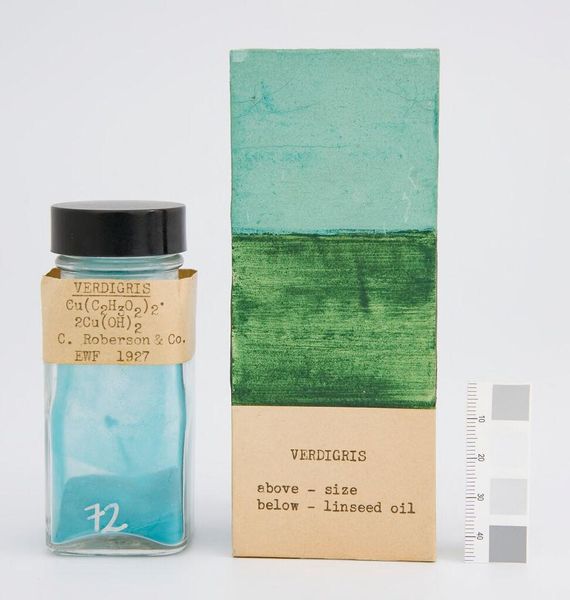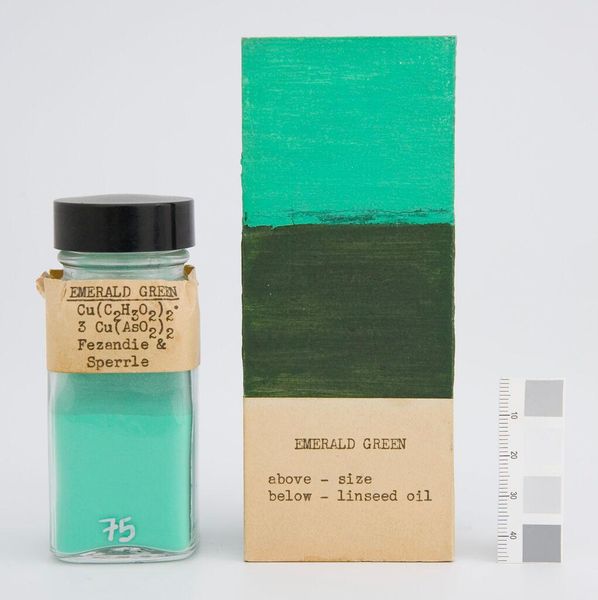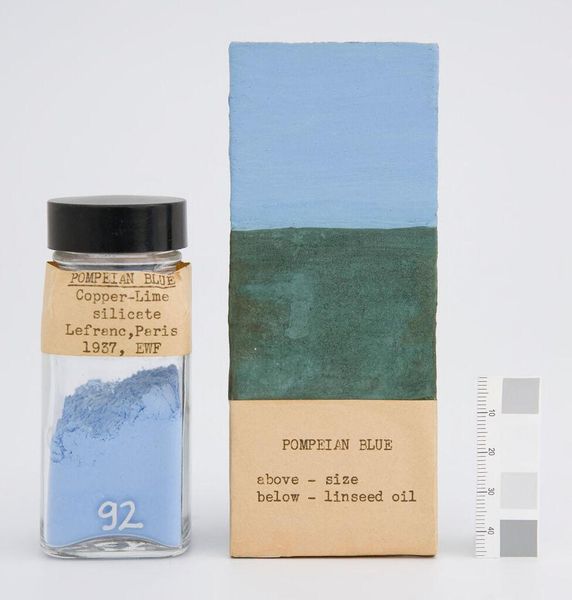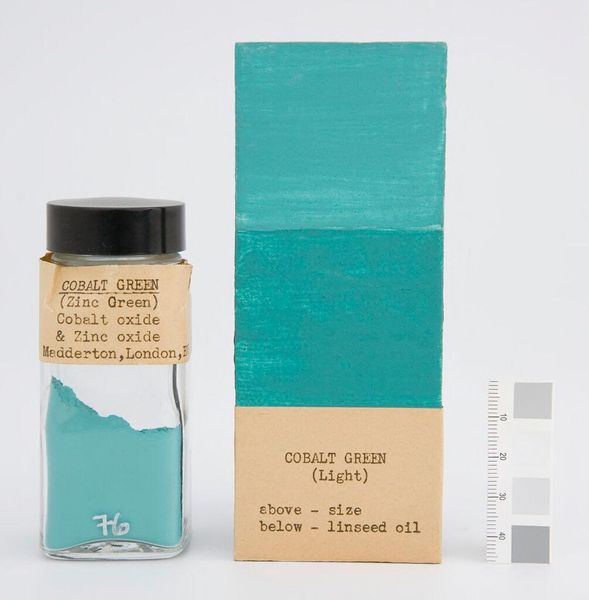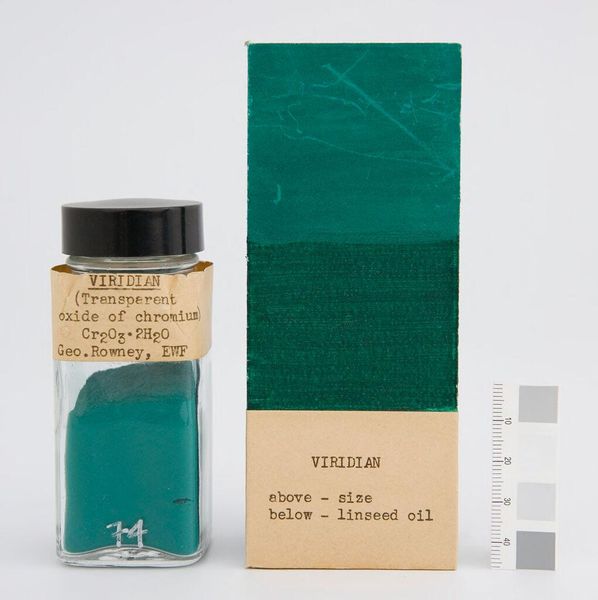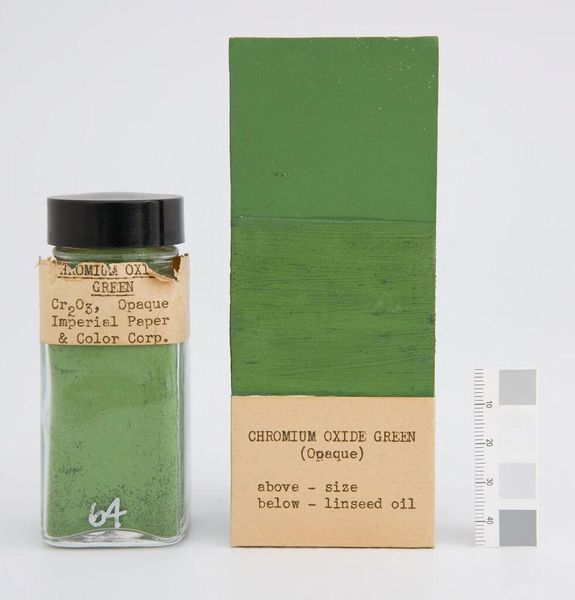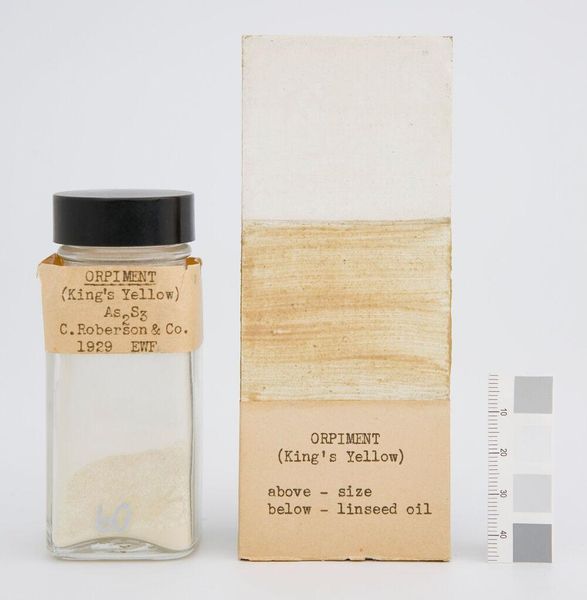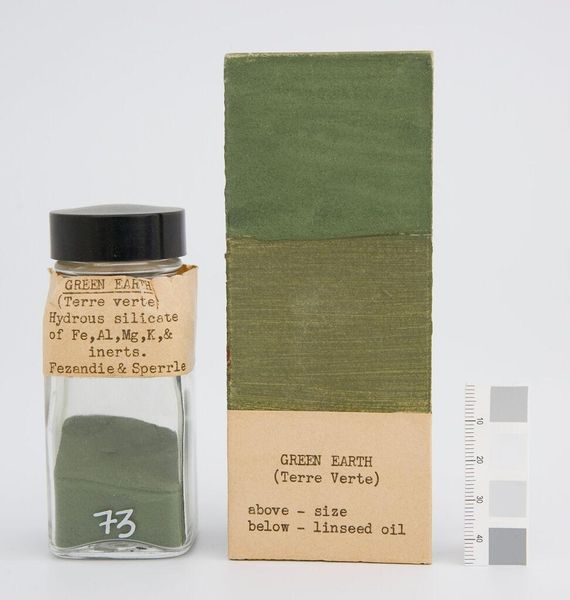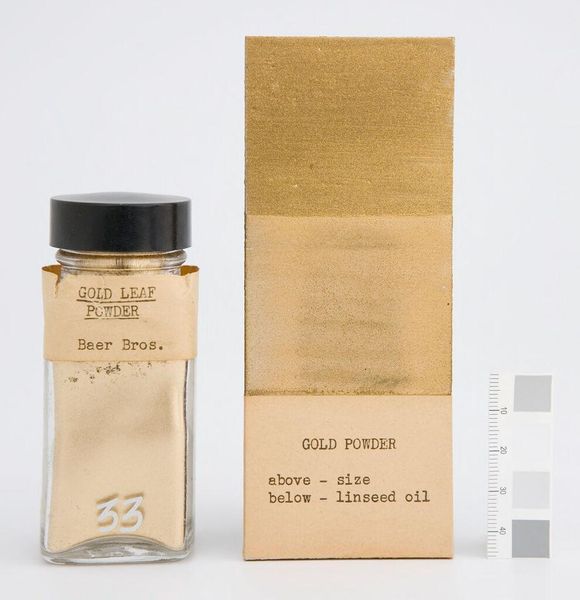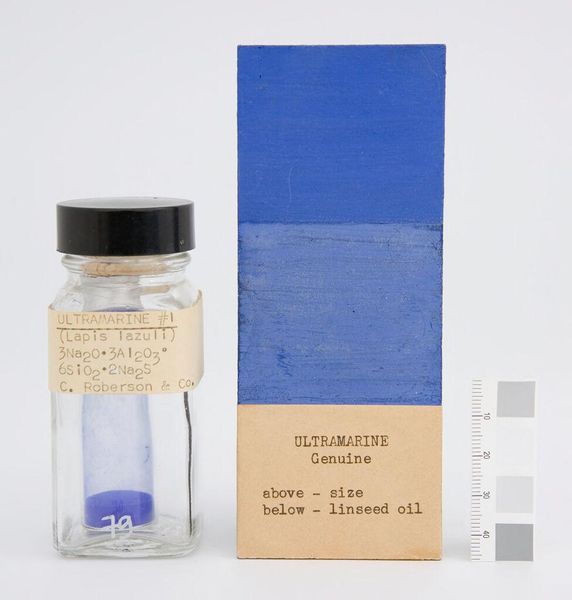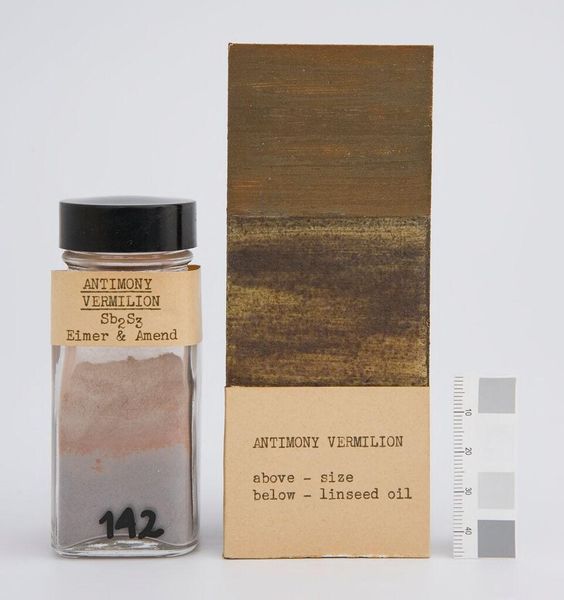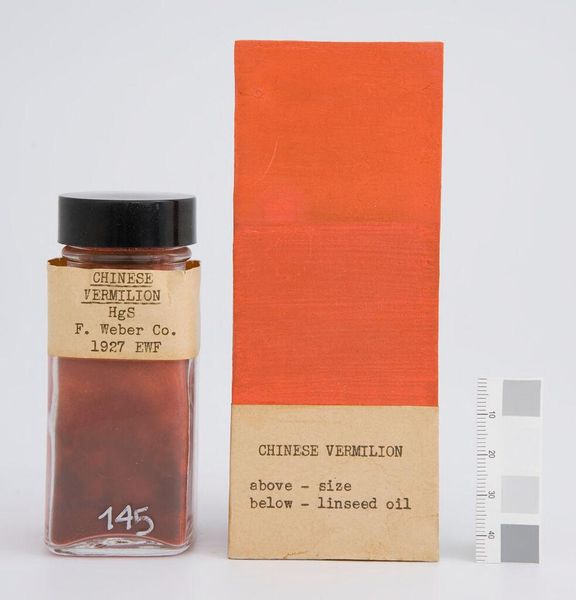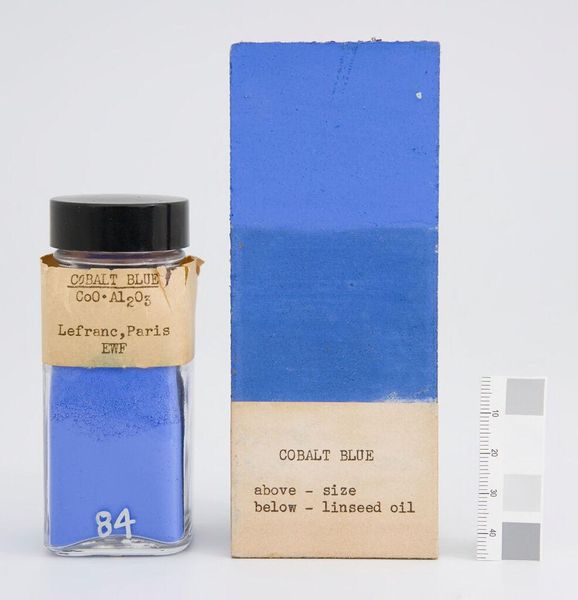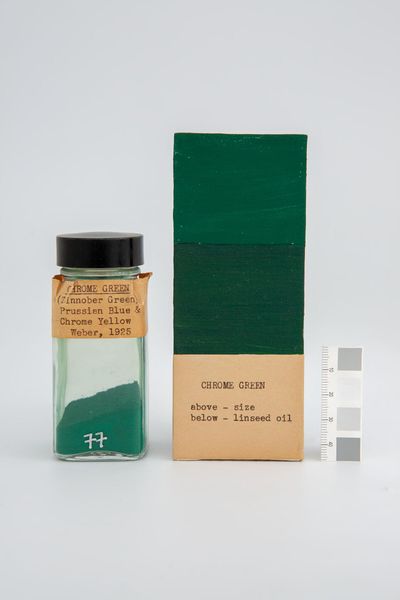
Copyright: CC0 1.0
Curator: This is 'Green Verditer (Malachite Green)' manufactured by Charles Roberson and Co. around 1927. It includes the pigment in a jar and a painted card demonstrating its qualities. Editor: It feels like a study in contrasts—the raw pigment versus its application, the solid green versus the airy blue. Curator: Exactly. Roberson was a prominent supplier. Seeing their process demystifies the 'artist' and highlights the laborers and material production. Editor: The materiality is striking. It reminds us that artmaking is tied to resource extraction and global trade. What were the working conditions? Who was profiting? Curator: These are crucial questions. The availability and cost of pigments shaped artistic choices, embedding these socio-economic factors within the artwork itself. Editor: It’s fascinating to consider this object as a document of its time, a material witness to historical labor practices. Curator: Precisely. It’s a reminder that art history isn't just about the finished product, but also the entire system that enables its creation. Editor: I agree. Looking at it this way gives us a more complete picture of both art and history.
Comments
No comments
Be the first to comment and join the conversation on the ultimate creative platform.
